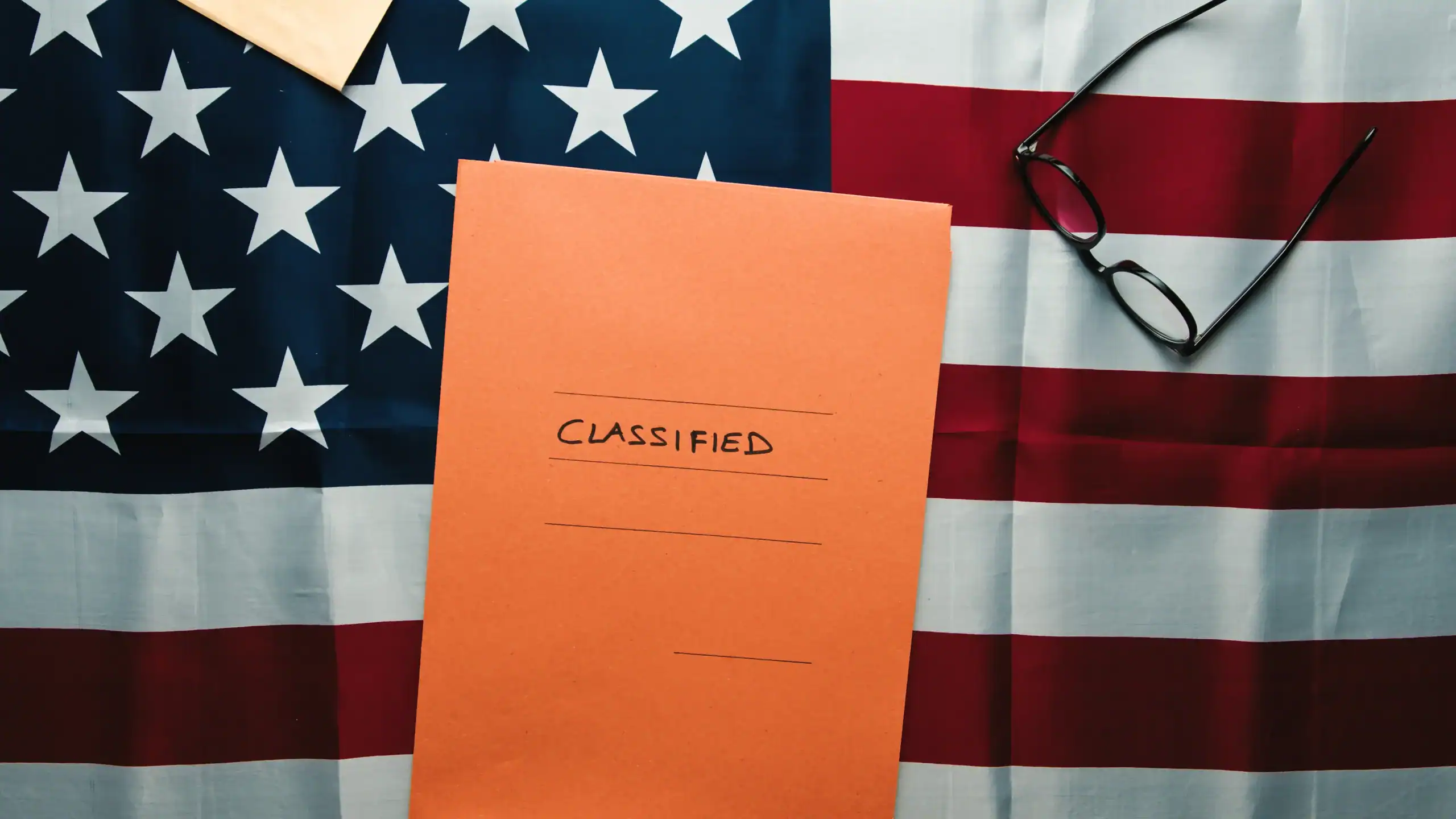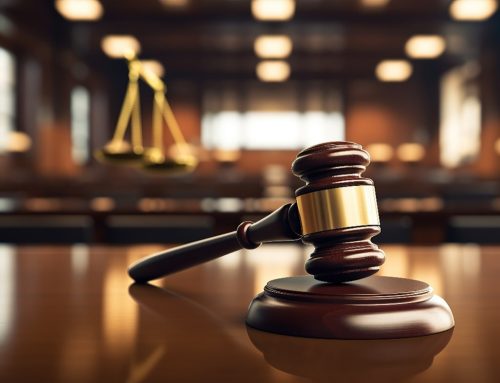Receiving a security clearance denial or a Notice of Intent to deny your security clearance can be jarring. Depending on your circumstances, a new job, a promotion, or even your current livelihood could be on the line.
Fortunately, that denial or Notice of Intent isn’t necessarily the end of the line. There is a security clearance appeal process available to you. However, your time to act is typically very limited, and the process can be complicated. The best way to ensure that you are choosing the best path to appeal and providing the information necessary to overcome a denial is to talk to an experienced security clearance appeal lawyer immediately.
Why Security Clearances Are Denied
Security clearance can be denied for any reason that suggests that the applicant may present a national security risk. There are 13 guidelines for assessing various areas of possible concern. Some of the most common issues are criminal history, alcohol abuse or drug use, financial problems, and failure to provide complete and accurate information on your SF86 or in your security clearance interview.
Security clearance may also be denied for misuse of information technology, allegiance to a foreign country or other types of foreign influence, and any type of personal misconduct that may be a red flag.

How to Appeal a Security Clearance Denial (Step‑by‑Step)
Responding to a Statement of Reasons (SOR): Your First Chance to Win
When the investigator uncovers red flags during your security clearance review, your clearance won’t be immediately denied. Instead, you’ll receive a Notice of Intent to deny. That notice is accompanied by a Statement of Reasons that your clearance may be denied.
This step isn’t technically part of the appeal process, since your clearance hasn’t yet been denied. But it is the first step toward fighting a security clearance denial.
For most security clearance applicants, the Notice of Intent will advise you of the time you have to respond to the SOR. This time is typically very limited, especially considering how detailed an effective response must be.
How to Write an Effective SOR Response
Your response to the SOR is an important opportunity. If you effectively mitigate the concerns raised in the SOR, security clearance may be granted with no further action required. Unfortunately, many applicants miss out on this opportunity because they do not understand the depth of information required to submit an effective response. You must respond point by point to the reasons listed, and provide evidence to mitigate each.
At The Edmunds Law Firm, we have found that a thorough response typically runs 20 pages or longer. An experienced security clearance appeal lawyer can ensure that you are providing the amount and type of information that can help you turn the process around.
Note that at this stage, the process for contractors is somewhat different.

The Security Clearance Appeal: What Happens After Your SOR Response?
After you submit your responses to the SOR, your application for security clearance will either be approved or denied. You can appeal a security clearance denial, but you will need to act quickly. In most cases, you’ll have just 10 days to file a notice of intent to appeal. And, most applicants will have a choice of appeal paths. Choosing the right one can impact the likelihood of success.
Security Clearance Appeal Options: DOHA Appeals vs. Written Appeals
There are small differences in the appeal process depending on the agency or branch of government that sponsored your security clearance application. Generally, you will have 10 days to file your notice of intent to appeal and then 30 days to follow it up with your security clearance appeals letter and supporting evidence.
You may have the option of relying on the written record for your appeal or requesting a hearing. Written appeals go straight to the Personnel Security Appeals Board (PSAB) for review and determination. Hearing requests are processed by the Defense Office of Hearings and Appeals (DOHA).
How Security Clearance Appeal Decisions Are Made
When you appeal a security clearance denial, PSAB determines your appeal. If you choose a written appeal, the information goes straight to PSAB for a decision. For DOHA appeals, there is a hearing before an administrative law judge (ALJ) or a senior adjudicator. The ALJ or adjudicator makes a recommendation, not a ruling. The recommendation goes to PSAB, along with the ALJ’s or adjudicator’s findings. Then PSAB issues a decision. Occasionally, the applicant may receive a request for additional information before PSAB renders a decision.
In most situations, it’s to the applicant’s advantage to use the DOHA appeals process and request a hearing. A hearing allows an opportunity to develop a more complete record for PSAB to base its decision on. Your security clearance appeal lawyer can advise you on the best way to appeal a security clearance denial in your case.
What to Do If You Lose Your Security Clearance Appeal
PSAB’s decision on a security clearance appeal is final. If you lose your appeal and your security clearance is denied, you can apply again in the future. However, in most cases, you will have to wait at least 12 months to reapply. You will also need to be prepared to address the issues that led to the denial.
How an Expert Security Clearance Appeal Lawyer Helps Strengthen Your Case
Responses to SORs and security clearance denial appeals are often unsuccessful simply because the applicant doesn’t fully understand how best to respond. National security clearance is a unique area of law, and most attorneys have no experience with the process. So, when you are seeking a security clearance appeal lawyer, you should make sure to work with an attorney who has in-depth experience with security clearance matters.
An experienced attorney can assist you by:
- Reviewing the SOR and drafting point-by-point responses
- Assisting you in gathering the evidence you need to support your SOR response or appeal, such as statements of support, financial records, or rehabilitation records
- Reviewing the information used to make the decision and helping you respond to any items that are inaccurate or incomplete
- Preparing you for and representing you at your appeal hearing
When to Hire a Security Clearance Appeal Attorney
The earlier in the process you get help, the better. Ideally, you would have used an experienced national security clearance lawyer to help complete your SF86 and prepare you for your interview and any requested polygraph examinations.
If you don’t already have an attorney, you should contact one as soon as you receive a Notice of Intent to deny your security clearance and SOR. You will have very little time to respond, and developing effective responses can be quite time-consuming. So, you will want to schedule a consultation with a security clearance lawyer right away. When you call, make sure you tell the law firm that you have received a Notice of Intent to deny and give them the deadline in your notice.
If you’ve already completed your response to the SOR on your own and then received a denial notice, the same principle applies. You will likely have just 10 days to submit your notice of intent to appeal, and then a limited time to draft and submit your appeals letter and supporting documentation.

Contact a Security Clearance Appeal Lawyer Right Now
Attorney Alan Edmunds and his team are fully devoted to serving national security clearance applicants and handling related issues, such as military discharge upgrades, global entry appeals, and government debarment matters. Our firm has been fighting for security clearance applicants for over 45 years, and we have in-depth knowledge of every aspect of the process.
We also know how important security clearance can be for your career and your financial well-being, and want you to have easy access to the information you need. That’s why we offer free consultations.
Call us today at 800-481-2526 or fill out our contact form to learn more about how we can help.

